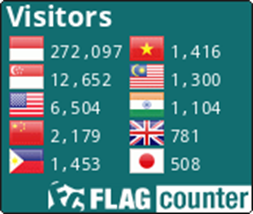Analysis of Knowledge Acquisition in Culinary Business (Case Study of Macaroni Panggang Bogor City)
DOI:
https://doi.org/10.26905/jbm.v8i1.5511Keywords:
Knowledge Management, Knowledge Acquisiton, Culinary Business, Knowledge Engineer, Process Knowledge AcquisitionAbstract
This study aims to analyze the process of knowledge acquisition in the culinary business, and the factors that influence knowledge acquisition. This research uses a qualitative approach with a case study method. Case study was selected  in this research is Macaroni Panggang, where Macaroni Panggang became one of the culinary businesses that carried out knowledge acquisition on food menus and restaurant management. The data analyzed collected from interviews with owners, supervisors and vice supervisors of Macaroni Panggang. The results of the study found that there are four knowledge acquisition processes in Macaroni Panggang namely planning, taking knowledge, testing stage, and revision stage. Factors that inhibit knowledge acquisition in Macaroni Panggang are human resource factors. At present Macaroni Panggang does not yet have the resources to conduct knowledge acquisition. This makes not all the knowledge taken can be a real product in Macaroni Panggang.
Downloads
References
Agarwal Ravi, Wolfgang Grassl dan Joy Pahl. (2012). Meta-SWOT: Introducing A New Strategic Planning Tool. Journal of Marketing Management, Vol. 33 NO. 2, pp. 12-21.
Becerra-Fernandez, I., & Sabherwal, R. (2010). Knowledge management Systems and Processes. New York: M. E. Sharpe, Inc.
Berry, D. C. (1987). The problem of implicit knowledge. Expert systems, 4(3), 144-151.
Biro Pusat Statistik (2018), Statistik Penyediaan Makanan dan Minuman, ISSN: 2714-837 No Publikasi/Publication Number : 06330.2001 Katalog / Catalog : 8204008
Clancey, W. J. (1984, January). Knowledge acquisition for classification expert systems. In Proceedings of the 1984 annual conference of the ACM on The fifth generation challenge, pp. 11-14.
Cragan, J. and Wright, D. (1980). Communication in Small Group Discussions: A Case Study Approach, West Publishing, New York.
Dalimunthe, Muhammad Bukhori, (2017), "Keunggulan Bersaing Melalui Orientasi Pasar dan Inovasi Produk." Jurnal Konsep Bisnis dan Manajemen, Vol. 3 Nomer 2, 140-153.
Duffy, J. 2001. The tools and technologies needed for knowledge management. Information Management Journal 35(1): 64–67.
Ericsson, K. A., & Simon, H. A. (1987). Protocol analysis: Verbal reports as data. The MIT Press.
Fellers, Jack W., "Skills and Techniques for Knowledeg Acquisition: A Survey, Assesment and Future Directions, ICIS 1987 Proceedings. 9, https://aisel.aisnet.org/icis1987/9.
Gamble, P. R., & Blackwell, J. (2001). Knowledge management: A state of the art guide. Kogan Page Publishers.
Hoffman, R. R. (1987). The problem of extracting the knowledge of experts from the perspective of experimental psychology. AI magazine, 8(2)
Kelly, G.A. (1955), The Psychology ofPersonal Constructs, New York: Norton.
Liou, Y. I. (1990, September). Knowledge acquisition: issues, techniques, and methodology. In Proceedings of the 1990 ACM SIGBDP conference on Trends and directions in expert systems (pp. 212-236).
Liou, Y.I. and Nunamaker, J.F. (1990). "Using a Group Decision Support System Environment for Knowledge Acquisition: A Field Study," Proceedinqs of the Twenty-Third Annual Hawaii International Conference on System Sciences, Vol. III, Kona, Hawaii, January 2-5, pp. 40-49.
Macintosh, A., Filby, I., Kingston, J., (1999) knowledge management Techniques: Teaching and Dissemination Concepts. International Journal of Human Computer Studies. Volume 51, Issue 3, September 1999, Pages 549-566
McGraw, K.L. and Harbison-Briggs, K. (1989). Knowledge Acquisition: Principples and Guidelines, Prentice Hall, Englewood Cliffs, NJ
Nathania, Yessica. (2018). ‘Pengaruh Budaya Organisasi dan Komitmen Organisasional Terhadap Kinerja Karyawan Pada Warunk Upnormal Surabaya’. AGORA, Vol. 6, No:1: 1-9.
Neuman, W. Lawrence. (2007). Basic of Social Research: Qualitative and Quantitative Approaches, Pearson Education Inc, Boston.
Olson, J. R., & Rueter, H. H. (1987). Extracting expertise from experts: Methods for Knowledge Acquisition, Expert systems, 4(3), 152-168.
Patel, V. L., & Groen, G. J. (1986). Knowledge based solution strategies in medical reasoning. Cognitive Science, 10(1), 91-116.
Quintas P, Lefrere P & Jones G (1997), " knowledge management: a strategic agenda", Long Range Planning, 30(3), 385-391 The Information Management Journal, 35 (1), 64–67
Turner, Geoff, and Clemente Minonne (2010), “Measuring the Effects of knowledge management Practicesâ€, Journal of knowledge management. Volume 8 Issue 1
Waterman, D. A., & Newell, A. (1971). Protocol analysis as a task for artificial intelligence (No. CMU-CS-71).
Downloads
Published
How to Cite
Issue
Section
License
Authors who publish with this journal agree to the following terms:
(1) Copyright of the published articles will be transferred to the journal as the publisher of the manuscripts. Therefore, the author confirms that the copyright has been managed by the journal.
(2) Publisher of Jurnal Bisnis dan Manajemen is University of Merdeka Malang.
(3) The copyright follows Creative Commons Attribution–ShareAlike License (CC BY SA): This license allows to Share — copy and redistribute the material in any medium or format, Adapt — remix, transform, and build upon the material, for any purpose, even commercially.














